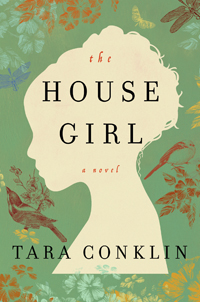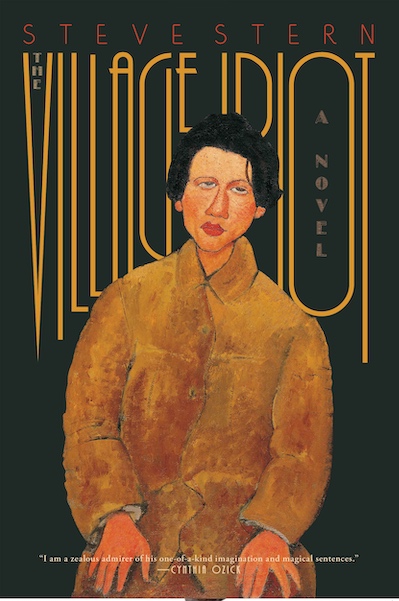The Nature of the Harm
In Tara Conklin’s The House Girl, lives interconnect across time to unravel a mystery of art and legacy
Tara Conklin’s debut novel, The House Girl, revolves around the legacy of Josephine Bell, a long-dead artist who lived as a house slave on a Virginia tobacco farm. By interweaving Josephine’s story with the path of the researcher trying to uncover that buried history, the novel confronts the question of whether it’s ever truly possible to restore what’s been ruptured by time and injustice.
 The researcher, Lina Sparrow, is a young litigator at a prestigious corporate law firm in New York. Lina is ambitious, rather lonely, and unsure of her place. She lives with her father, a well-known painter named Oscar, who raised her in a too-large, too-expensive Brooklyn brownstone. Unanswered questions about her mother—unanswered because Oscar refuses to address the subject—cloud Lina’s vision of herself and her future. But as Oscar prepares to unveil a long-anticipated solo show, the paintings promise to spill the details of their family’s tightly guarded secrets.
The researcher, Lina Sparrow, is a young litigator at a prestigious corporate law firm in New York. Lina is ambitious, rather lonely, and unsure of her place. She lives with her father, a well-known painter named Oscar, who raised her in a too-large, too-expensive Brooklyn brownstone. Unanswered questions about her mother—unanswered because Oscar refuses to address the subject—cloud Lina’s vision of herself and her future. But as Oscar prepares to unveil a long-anticipated solo show, the paintings promise to spill the details of their family’s tightly guarded secrets.
On the eve of these revelations about her own past, Lina is handed a case also steeped in symbols and secret histories. One of her firm’s high-powered clients proposes a class-action lawsuit against numerous corporations and the federal government—a suit designed to collect trillions of dollars in reparation for American slavery. Lina’s assignment is to find the perfect lead plaintiff, the descendent of a slave who represents “the nature of the harm” done to generations of black Americans.
 Lina finds a compelling candidate in Josephine Bell, the young house slave of a Virginia tobacco farmer, Robert Bell, and his wife Lu Anne. Josephine grew up at Bell Creek, suffering abuse from Robert and serving Lu Anne, an amateur painter. Over the years, Josephine developed considerable skill as an artist herself, at times taking over when Lu Anne became frustrated by her limited talent, at other times creating works solely on her own.
Lina finds a compelling candidate in Josephine Bell, the young house slave of a Virginia tobacco farmer, Robert Bell, and his wife Lu Anne. Josephine grew up at Bell Creek, suffering abuse from Robert and serving Lu Anne, an amateur painter. Over the years, Josephine developed considerable skill as an artist herself, at times taking over when Lu Anne became frustrated by her limited talent, at other times creating works solely on her own.
By the time Lina begins her research, authorship of the Bell works is a hot point of contention in the art world. Lu Anne Bell has become a treasured symbol of feminist triumph and self-schooled artistic merit. As Lu Anne’s artistic authenticity becomes increasingly uncertain, a Bell archivist tells Lina, “There are so many people upset about losing Lu Anne. Or not losing her, but, oh, it’s hard to put into words. Losing the idea of her.” The revelation of Josephine’s role in the Bell body of work represents both an exciting upheaval of tradition and a threat to the accepted history (not to mention the financial worth of the Bell collection).
The novel is told in chapters that alternate between Josephine and Lina’s points of view. Josephine’s sections are by far the more engrossing, written in lush strokes that draw us into the turning point of her life—the day she decides to run away from Bell Creek and find freedom. Josephine herself—and not the controversies and legal matters that surround her—is the compelling force of this novel, moving through her difficult world with the vision and determination of a true artist.
Josephine’s ultimate fate comes to us largely through extended letters from people who knew her. Though the revelations found in the letters are moving, the novel loses some of its engaging force whenever Josephine is off-stage. Inside Josephine’s point of view, however, the depth and intelligence of her artistic vision are clear: “Josephine stopped her work on the canvas. This will be my last, she thought. The last picture made here in this room, and she felt a bottomless sinking, a different kind of fear, not the fear of discovery, of the hounds, of capture and punishment, but of the deep unknown, the world beyond the latched gate about which she knew nothing. For a moment it stretched forward in her mind as colors and light, chaos and noise.”
The House Girl contains a satisfying resolution to the mysteries surrounding Josephine’s personal fate and the legacy of her work. This character resonates well beyond the novel’s final pages, which bring her back into the foreground of her own story, where she belongs.
Tara Conklin will discuss The House Girl at the twenty-fifth annual Southern Festival of Books, held in Nashville October 11-13, 2013. All festival events are free and open to the public.


